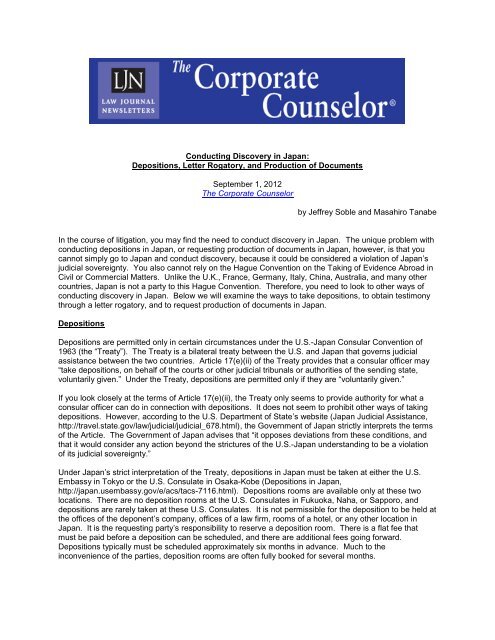The Role of Letters Rogatory in International Law: Secret Insights
Letters rogatory serve as a crucial tool in worldwide law, promoting cross-border legal aid by enabling jurisdictions to formally ask for evidence and activities from one another. What effects might these challenges have for future lawful proceedings?
Definition of Letters Rogatory
In the world of international regulation, letters rogatory work as official requests provided by a court in one territory to look for support from a court in another territory. Letters rogatory. These demands are particularly significant in cross-border lawful procedures, where the enforcement of a court's order or the celebration of evidence might be impeded because of administrative limitations

The process usually needs the asking for court to verbalize the specific details or action required from the foreign court, adhering to the lawful protocols and conventions established in between the jurisdictions entailed. When issued, the letters rogatory are sent with polite channels, which may consist of embassies or consulates, to make certain that the request is identified and acted on by the foreign court. Generally, letters rogatory exemplify the participating framework necessary for effective global lawful processes.
Historical Context
Although the technique of letters rogatory has old roots, its formalization within the structure of international law arised significantly in the 20th century. Historically, such ask for judicial assistance were used in different lawful traditions, including Roman legislation, where they assisted in cross-border teamwork in lawful issues. The concept got restored interest with the surge of globalization and the raising intricacy of international lawful communications.
The mid-20th century saw the establishment of treaties and conventions that looked for to standardize the process of letters rogatory. Especially, the 1970 Hague Convention on the Taking of Proof Abroad in Civil or Industrial Issues provided a structured technique, boosting the efficacy of these requests - Letters rogatory. This duration noted a shift from informal plans to an extra systematic framework, which dealt with the difficulties postured by varying nationwide lawful systems
As states came to be more interdependent, the need for efficient systems to gather evidence across borders ended up being evident, strengthening the duty of letters rogatory in promoting global cooperation. Today, they remain an essential instrument for obtaining proof and ensuring that justice goes beyond nationwide borders, mirroring the advancing nature of international law in response to global obstacles.
Refine of Issuing Requests
The process of releasing letters rogatory typically involves numerous critical actions made to make certain that ask for judicial help are clear, specific, and certified with both residential and worldwide lawful criteria. At first, a celebration seeking support should prepare an official demand that details the important facts of the case, the alleviation sought, and the details proof or statement required. This file should be crafted with precision to fulfill the legal needs of the jurisdiction in which it will certainly be submitted.
Adhering to the preparation of the demand, it is sent to the suitable authority, often a court or a marked governmental agency. This authority assesses the request to guarantee it abides by step-by-step norms and lawful standards. When authorized, the demand is sent to the international territory through polite channels.
Upon invoice, the foreign court reviews the demand's compliance with its regional regulations and practices (Letters rogatory). If approved, it continues to perform the demand, which might involve the issuance of subpoenas or the collection of evidence. Throughout this process, keeping clear communication between the asking for and obtaining jurisdictions is vital to ensure successful teamwork and the fulfillment of the request
Difficulties and Limitations
Limitations and difficulties regularly arise in the procedure of executing letters rogatory, typically originating from varying lawful systems and procedures between jurisdictions. One considerable challenge is the varying criteria of admissibility for proof, which can lead to problems in the acceptance of paperwork requested with letters rogatory. Furthermore, the lack of harmony in lawful terms and interpretations can develop misconceptions, making complex interaction in between courts in various countries.
Furthermore, delays Continue prevail because of administrative processes, as the request might require to pass through multiple layers of lawful authorities before helpful site it is fulfilled. In some circumstances, the requested territory may lack the necessary sources or willingness to coordinate, better impeding the process. Language obstacles likewise contribute to difficulties, as exact translation of lawful documents is critical for ensuring that the designated message is communicated without distortion.
Last but not least, sovereignty issues might arise, as some states hesitate to abide by requests that they regard as infringing upon their lawful freedom. These obstacles highlight the intricacies integral in using letters rogatory, requiring greater harmonization and collaboration among international legal systems to boost their effectiveness.

Influence On International Cooperation
Identifying the importance of letters rogatory in cultivating international participation is vital, as these demands help with cross-border lawful help and promote joint efforts in civil and criminal matters. By making it possible for one territory to formally ask for assistance from read what he said another, letters rogatory develop a structured legal structure that boosts the performance of international interaction in between judicial authorities.
Making use of letters rogatory aids to develop shared trust and regard amongst countries, which is vital in a progressively interconnected world. They work as a mechanism not just for gathering evidence yet also for making sure that legal processes are upheld throughout borders. This is particularly essential in combating transnational criminal activity, where the inability to safeguard participation can weaken justice.
Furthermore, the dependence on letters rogatory can simplify complicated lawful procedures, decreasing hold-ups and unpredictabilities in global examinations. The procedural safeguards inherent in this procedure contribute to the protection of specific legal rights while facilitating cooperation among states. Ultimately, the influence of letters rogatory on worldwide cooperation underscores their duty as important tools in the promo of justice, cultivating a collective spirit that goes beyond nationwide limits and lawful systems.
Final Thought
In final thought, letters rogatory offer as a vital instrument in international law, facilitating cross-border legal help and teamwork. The continued advancement of these systems is vital for boosting the effectiveness of international lawful procedures, inevitably promoting more powerful cooperation in both criminal and civil matters throughout jurisdictions.
Letters rogatory serve as a critical instrument in international legislation, promoting cross-border lawful assistance by permitting territories to formally request evidence and activities from one another.The process usually requires the requesting court to express the certain information or activity needed from the foreign court, adhering to the legal procedures and conventions developed in between the territories involved. Historically, such requests for judicial aid were used in numerous lawful customs, including Roman law, where they assisted in cross-border participation in lawful matters.The procedure of providing letters rogatory usually entails several crucial actions created to ensure that demands for judicial help are clear, particular, and compliant with both domestic and international legal standards.Additionally, hold-ups are usual due to administrative procedures, as the demand may require to pass via numerous layers of legal authorities before it is satisfied.